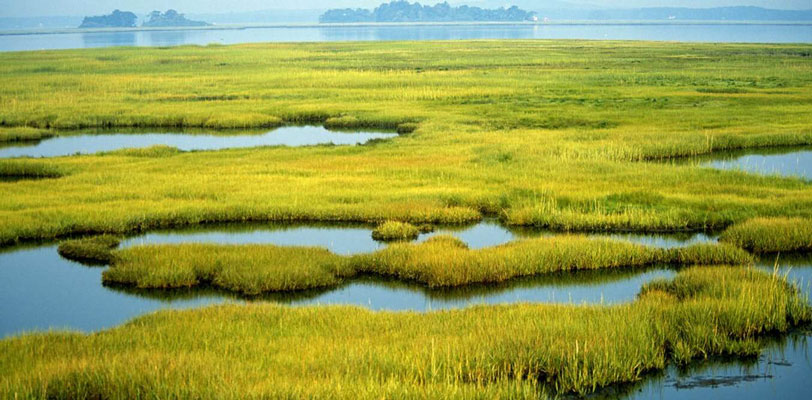
environment:By Kennedy nyavaya
Last Sunday marked the annual World Wetlands Day — a day when the world commemorates a significant part of the ecosystem — wetlands. Themed, ‘Wetlands and Biodiversity’, the day passed with sharing of information locally with some organisations hosting events to cement support for the preservation and protection of wetlands.
However, it appears not many, particularly, among land barons and Harare City Council, have learned anything pertaining to the protection of the environment and varied species that complement human existence.
It is a shame and irritating that in 2020, we are still getting headlines alluding to the parcelling-out of land for residential housing stands or commercial use on wetlands.
Added to that are endless debates on who the criminals facilitating such activities for their financial benefit are or what should be done to them.
Had it not been for the watchful eyes of Mabelreign residents recently, kudos to them, the Sherwood golf course, established to preserve the wetland it sits on, would have been the latest space given up for development in what exposes the careless conduct of the powers-that-be.
Perhaps, for all its worth, the land barons and their complicit partners — the city fathers and would-be land buyers — need a reminder of the importance of wetlands.
A wetland is a land area that is saturated with water, either permanently or seasonally, such that it takes on the characteristics of a distinct ecosystem.
- Chamisa under fire over US$120K donation
- Mavhunga puts DeMbare into Chibuku quarterfinals
- Pension funds bet on Cabora Bassa oilfields
- Councils defy govt fire tender directive
Keep Reading
This is basically where water meets land and this includes mangroves, peatlands and marshes, among other water bodies.
In essence, wetlands play a pivotal role in the water cycle as they recharge underground water by allowing it to sink into the soil, reducing high runoff which is a major cause of flooding.
According to Conservation Society of Monavale member Jimmy Muropa, increasing urban development and cultivation has already started affecting water supply in Harare.
“Harare’s wetlands face a major threat, especially from construction and cultivation because it dries them off and that is the reason why the water table of Harare is lowering,” said Muropa.
Experts say over the last decade, Harare’s water table has sunk between 15 and 30 metres and that is set to get worse if left unchecked.
“When these people cultivate, for example, they start right on the river bank and expose the soil and when the rain falls there is erosion that happens, so currently about 40% of Lake Chivero is under siltation and in some areas it’s up to 18 metres,” said Muropa.
With the city’s main water source silting, underground water levels depleting and successive droughts over the years, the water crisis is bound to get worse and wetlands are one major way out.
Adding to these woes, the city faced an acute water shortage in 2019, which the council largely blamed on lack of sufficient rains in the last rainy season.
With the local authority apparently folding its hands as the menace continues and scanty rains also predicted for this year, one wonders how long it will take before the city goes dry again.
“If we continue with the business approach as usual we will lose our wetlands in urban areas by 2040, impacting on ecological goods and services such as water provisioning in the right quantity and quality,” Environment minister Mangaliso Ndlovu was quoted saying last week.
Ndlovu went on to unconvincingly promise to enforce the law ensuring that criminal activities affecting wetlands is stopped.
“Government . . . is in the process of formulating wetlands management guidelines to provide a roadmap and tool-kit on the protection of wetlands,” he reportedly said.
Such perpetual government talk hardly brings smiles to the environmentally conscious individual considering that laws, both local and international, are already in place but lack implementation.
Within the country’s legal framework, wetlands are protected under the Environmental Management Act, which is the basis on which the Environmental Management Agency (EMA) was commissioned.
Ironically, EMA has on countless occasions been accused of colluding with criminals by questionably giving Environmental Impact Assessments (EIAs) certificates on land unsuitable for development.
African Youth Initiative on Climate Change’s Elizabeth Gulugulu said regulatory authorities like EMA need to take real action “on this serious issue concerning wetlands”.
“There is need for consistency and if it is law, it should apply to everyone and not to specific people,” she said.
“Law is law and if there is need for an EIA and results indicate that an area is not suitable for construction or urban agriculture, that has to be followed.”
Meanwhile, Harare Wetlands Trust spokesperson Edgar Gweshe also called for more advocacy and sensitising of citizens to ensure that everyone understands the far-reaching implications of wetland destruction for short-term benefits.
“The challenge we are facing is actually lack of knowledge among the general populace regarding the importance of wetlands,” said Gweshe.
“When it comes to the issue of urban agriculture, for example, people see it as a way out of poverty, but our argument is that we can cultivate and get our maize but what happens when we run out of water?”











